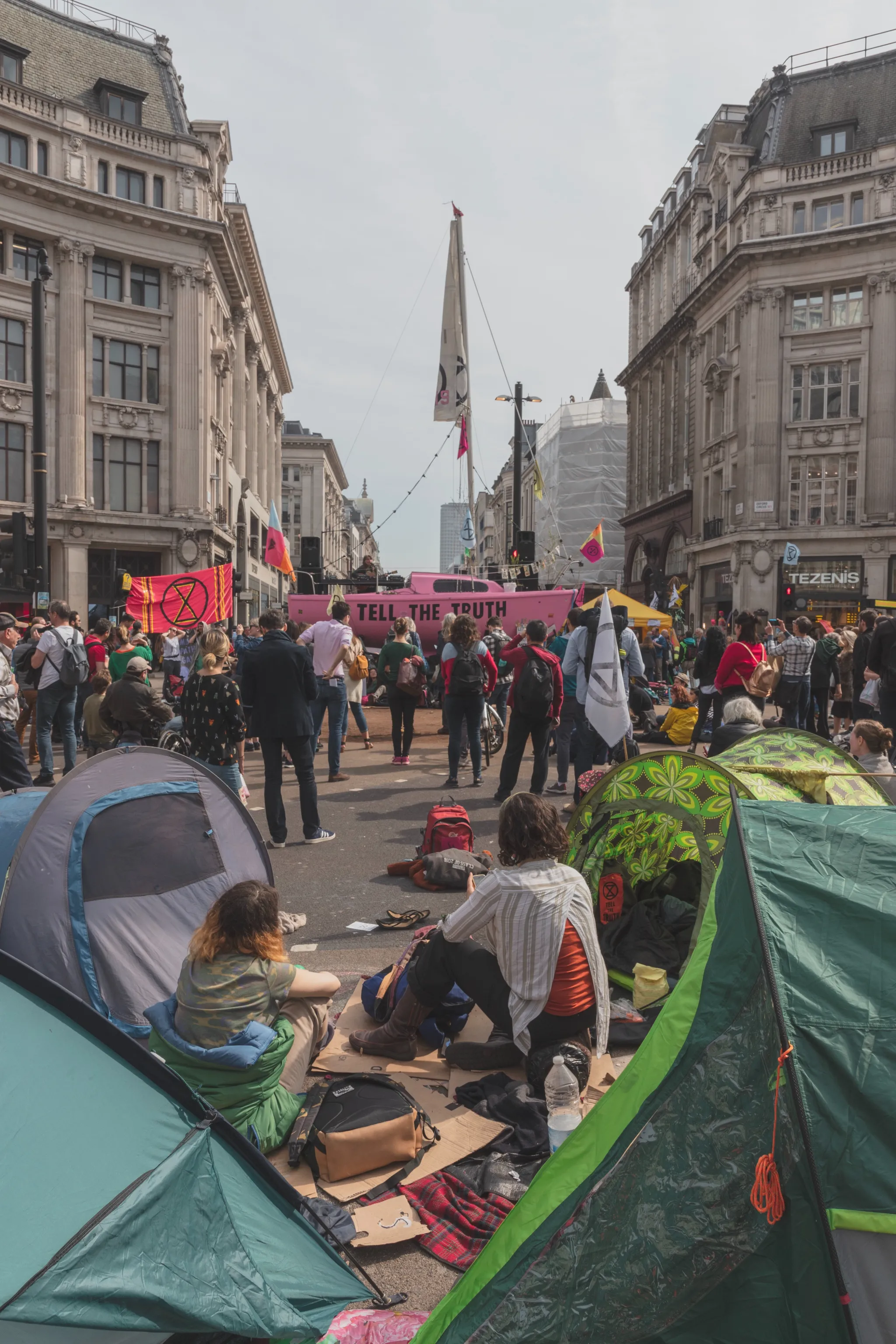Where Environmental Defenders are Criminalized, Democracy Suffers

Disclaimer: Opinions expressed in this commentary are those of the author and do not necessarily represent the institutional position of International IDEA, its Board of Advisers or its Council of Member States.
Over the past five years, every region in the world has seen notable declines in Freedom of Association and Assembly, according to the 2023 Global State of Democracy report. Increasingly, environmental defenders, ranging from Indigenous earth defenders to climate protesters, have felt the impact. Violence from police and non-state actors frequently leads to clashes, in contexts as diverse as Türkiye, Azerbaijan, and the Netherlands and, measured as a ten-year global average, it kills one environmental defender every two days. Despite the overwhelmingly non-violent nature of environmental defenders’ tactics, many governments, including those of overall high-performing democracies like France and Australia, have opted to criminalize them. Such government responses infringe on essential rights like the Freedom of Association and Assembly and pose a serious threat to democracy.
How do governments justify criminalization?
One analysis of almost 3,000 cases of environmental conflict worldwide revealed that criminalization occurs in at least a fifth of them.
Often, harsh crackdowns on environmental defenders are framed as necessary to uphold public order, even if it comes at the expense of civil liberties. For instance, in the UK, blockades by Extinction Rebellion sparked worries about public safety on motorways and the ease of throughfare for emergency services, despite Extinction Rebellion’s policy of giving way to "blue light services". In response, the 2022 Police, Crime, Sentencing and Courts Bill was passed, restricting where and how protests can be held and increasing penalties for offences. A year later, The Public Order Act was introduced, criminalizing popular peaceful protest tactics. Coupled with the use of injunctions by public bodies (like National Highways) that ban protests and impose legal fees on environmental defenders, these laws go beyond guaranteeing public safety to create a debilitating environment for activism. On the other side of the globe, the Australian government in May 2023 responded to climate protests with an anti-protest law increasing the maximum fine for obstructing the free passage of a public place by over 6,500 per cent to AUD 50,000, while also upping the maximum jail sentence for the crime.
Other countries conflate environmental activism and terrorism, allowing them to apply the legal and normative forces of antiterrorism to mere protest actions. One of the first to do so was the US, where the 2001 Patriot Act broadened the legal definition of terrorism to include harm caused to inanimate objects, opening pathways for environmental defenders to be tried and punished as terrorists. This led to a wave of harsh terrorism sentences for environmental defenders, mainly guilty of arson, now referred to as the 'Green Scare'. More recently, in France, the environmentalist group Earth Uprisings (Les Soulèvements de la Terre) was labelled an ecoterrorist organization and banned for ‘inciting violence,’ after it protested the construction of water reservoirs in March 2023.
What does this mean for democracy?
There is no doubt that environmental activism inconveniences the public and the businesses it targets. Leveraging disruption to create public pressure is inherent to the movement. Yet, if states restrict their citizens’ civil liberties, they must prove that it is a proportional measure that fairly balances protecting democratic rights and the common good. Given that environmental defenders employ largely peaceful tactics to advocate for the long-term common good – a planet to live on – it seems that this balance has been falsely struck. As such, the pretexts of upholding public order and preventing terrorism only offer a veneer of legitimacy to disproportionate restrictions on the Freedom of Association and Assembly of environmental defenders. This is a deeply troubling trend that weakens democracy at its core, by curbing opportunities for democratic participation, decreasing state accountability and stifling public discourse. At a time of broad democratic decline, it is crucial that governments act to safeguard democracy, rather than undermining it. Instead of criminalizing environmental defenders, whose contributions are vital to ensuring greater state responsiveness and environmental protection, governments should work to mitigate the fallout of the climate crisis, which will likely disrupt public life more than environmental defenders ever could.




